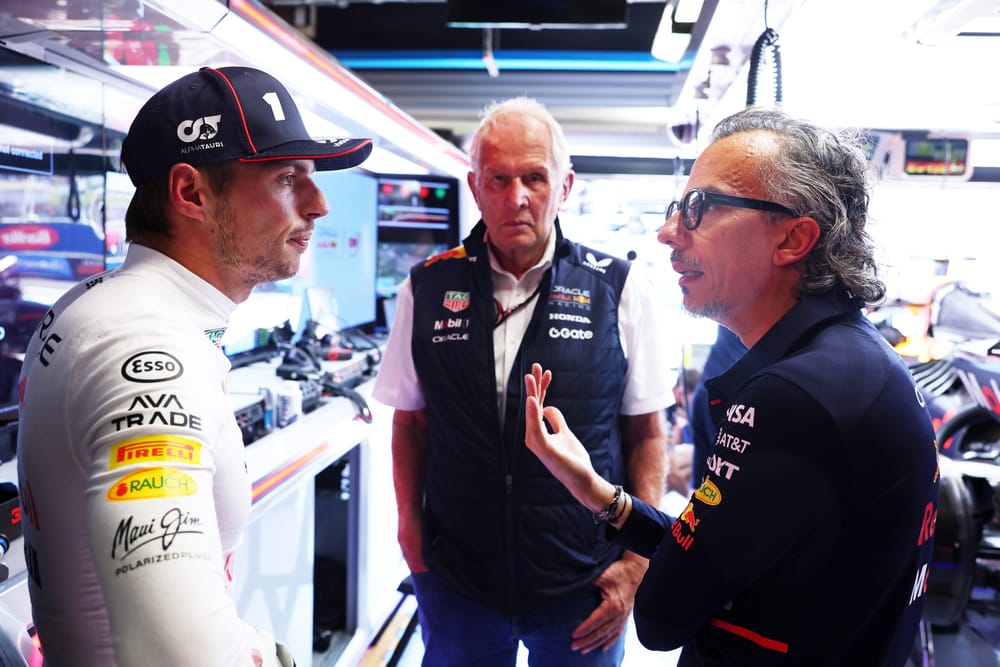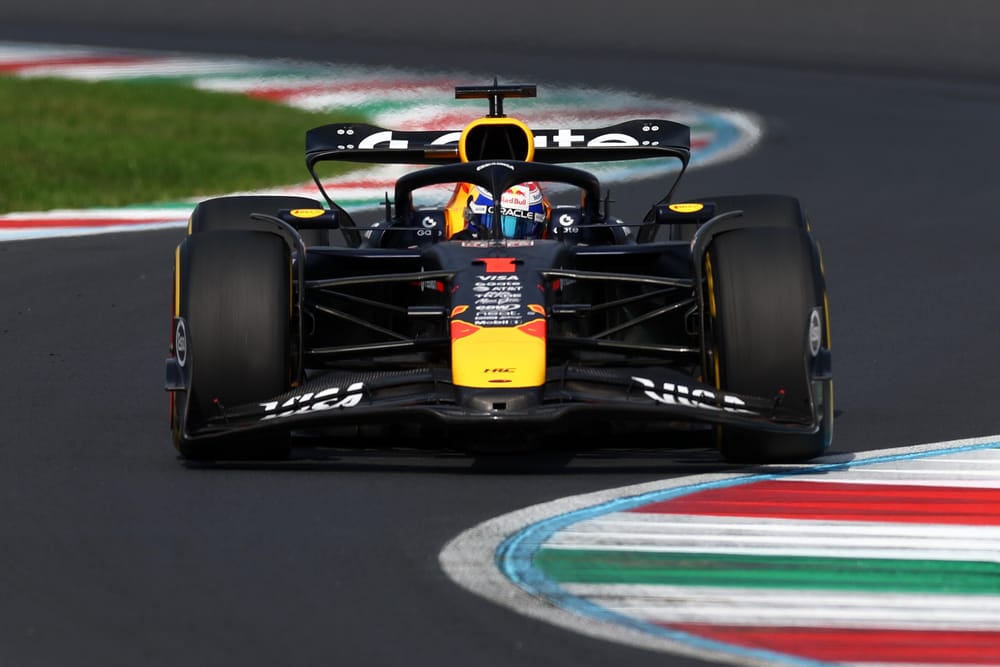It would have been easy after Red Bull's Italian Grand Prix win for its new Formula 1 team boss Laurent Mekies to take credit for the success.
After all, it was Red Bull's first proper F1 win since Imola in May and the first under Mekies' leadership.
But Mekies is not the sort of person who sees value in grandstanding for ego reasons.
Nor is he somebody who wants to downplay the decisions and influence of others, including his predecessor Christian Horner.
In fact, after seeing Max Verstappen triumph at Monza, he reckoned it was simple to quantify his input.
“The answer is a very easy one,” he said. “The level of contribution is zero, and I'm not joking either.
“It's 1500 people working on making that car faster. It is the addition of these talents that makes the car faster, that makes the hundredths and makes the thousandths.
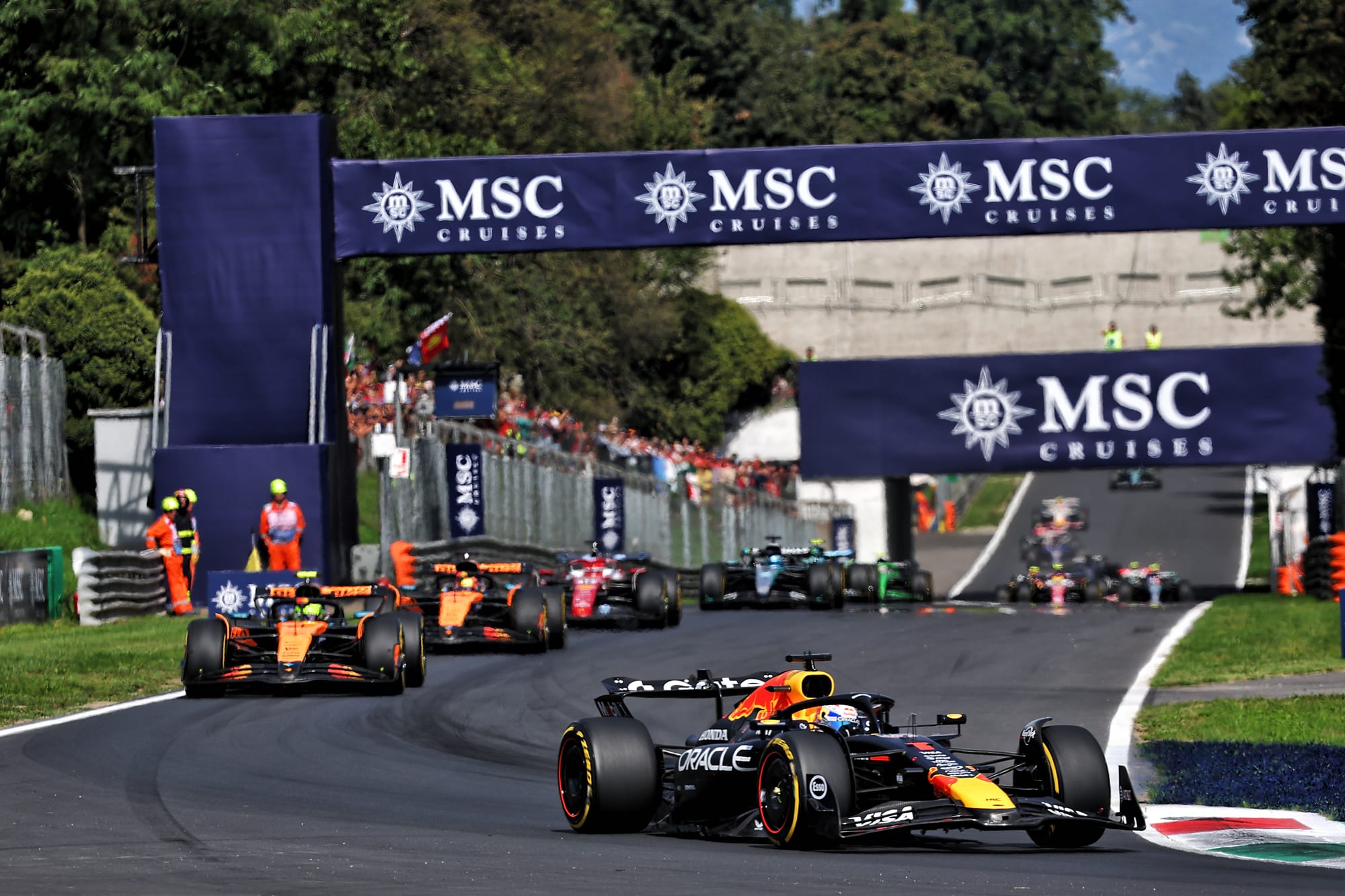
“They make the set-up options available and make a new component available. So the short answer is: zero.”
While Mekies is dead serious about his “zero” contribution, it would be wrong to say he has not had any influence at the team since his shock arrival.
But what is difficult right now is to assess the true impact of this in terms of how it is shaping results.
Yes there are obvious changes in how Mekies operates compared to Horner – whether that be in how engineering meetings are conducted, the interaction with the media or communication protocols on the pitwall.
But his “zero contribution” stance probably also comes from his own understanding that a lot of good things were in place before he arrived.
The legacy factors
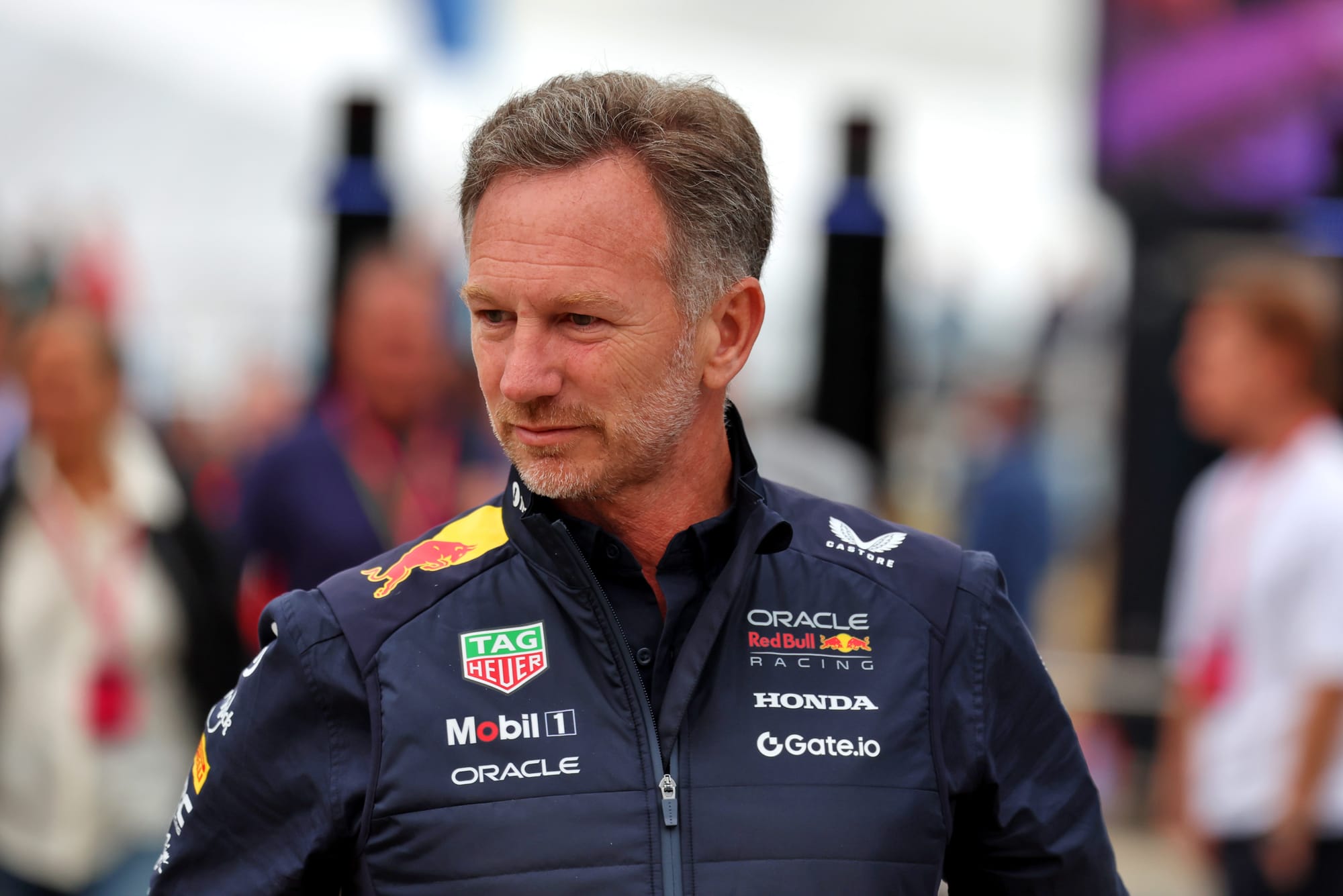
Some elements of what we are seeing right now are easy to trace back to the Horner-era Red Bull.
For example, car design decisions that have helped deliver recent success are legacies of calls made well before Mekies got his feet under the desk at Milton Keynes.
The ultra-low downforce Monza rear wing that proved critical to Verstappen turning the tables on McLaren at the Italian Grand Prix was something signed off almost 12 months ago, in the wake of the team’s torrid 2024 race there.
The main version of it (prior to the extra trimming that took place for FP3 in Italy), even ran under Horner’s watch at the British Grand Prix when it was widely talked about inside the Red Bull garage as being the “Monza upgrade”.
That wing helped Verstappen grab pole position at Silverstone too, but ultimately proved not to be ideal for the rain that impacted the British GP on the Sunday.
There are positive factors off track that, while appearing in the public domain only now, are directly related to the previous regime too.
For example, a recent sponsorship partnership with investment company Carlyle was announced in the wake of Red Bull’s Italian GP triumph.
But this was a deal that had been concluded months ago and it is understood that the agreement was finalised by Horner and former chief marketing officer Oliver Hughes around the time of the Canadian Grand Prix.
Sources suggest further deals are due to be announced over the coming weeks that were also signed off under Horner’s watch.
Horner and Hughes were savvy on the commercial front – having helped pull in plenty of sponsors and commercial partners over the years.
So the true impact in this area of their absence probably won’t flow through the system for quite a while until it comes to deal renewal time.
The Verstappen element
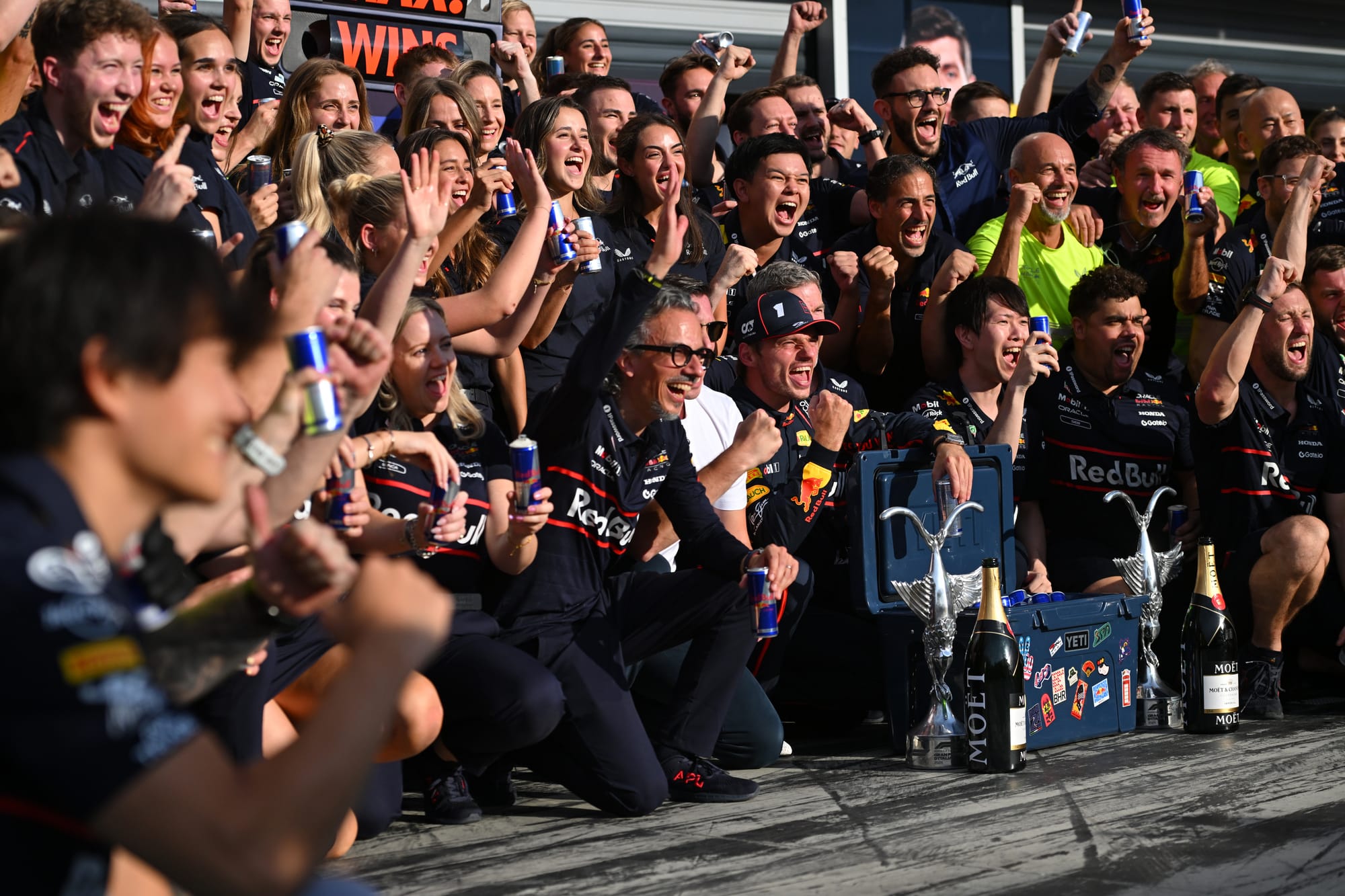
One thing that has changed from Horner’s time to now is that all the speculation about Verstappen’s future has stopped.
Some of this was down to personal situations - Verstappen’s father Jos is known not to be a fan of Horner. So a change at the top was always going to alter the dynamics behind the scenes.
But more critical was that within two races of Mekies' arrival, Verstappen duly publicly committed his future to Red Bull for the first time.
This instantly took away one of the headaches that the squad had previously faced in risking losing its star attraction.
However, this is something that may have happened under Horner anyway because Verstappen was ultimately locked in by performance clauses in his contract.
His results over the Belgian GP weekend guaranteed he'd be in third place in the drivers’ championship standings by the summer break and meant he could no longer leave via a clause in his contract.
Whatever the ultimate trigger for it, Verstappen’s guaranteed commitment for 2026 has meant both driver and team boss have been able to focus on a future direction together, so their paths are aligned in making sure next year is as successful as can be.
This has had a calming influence.
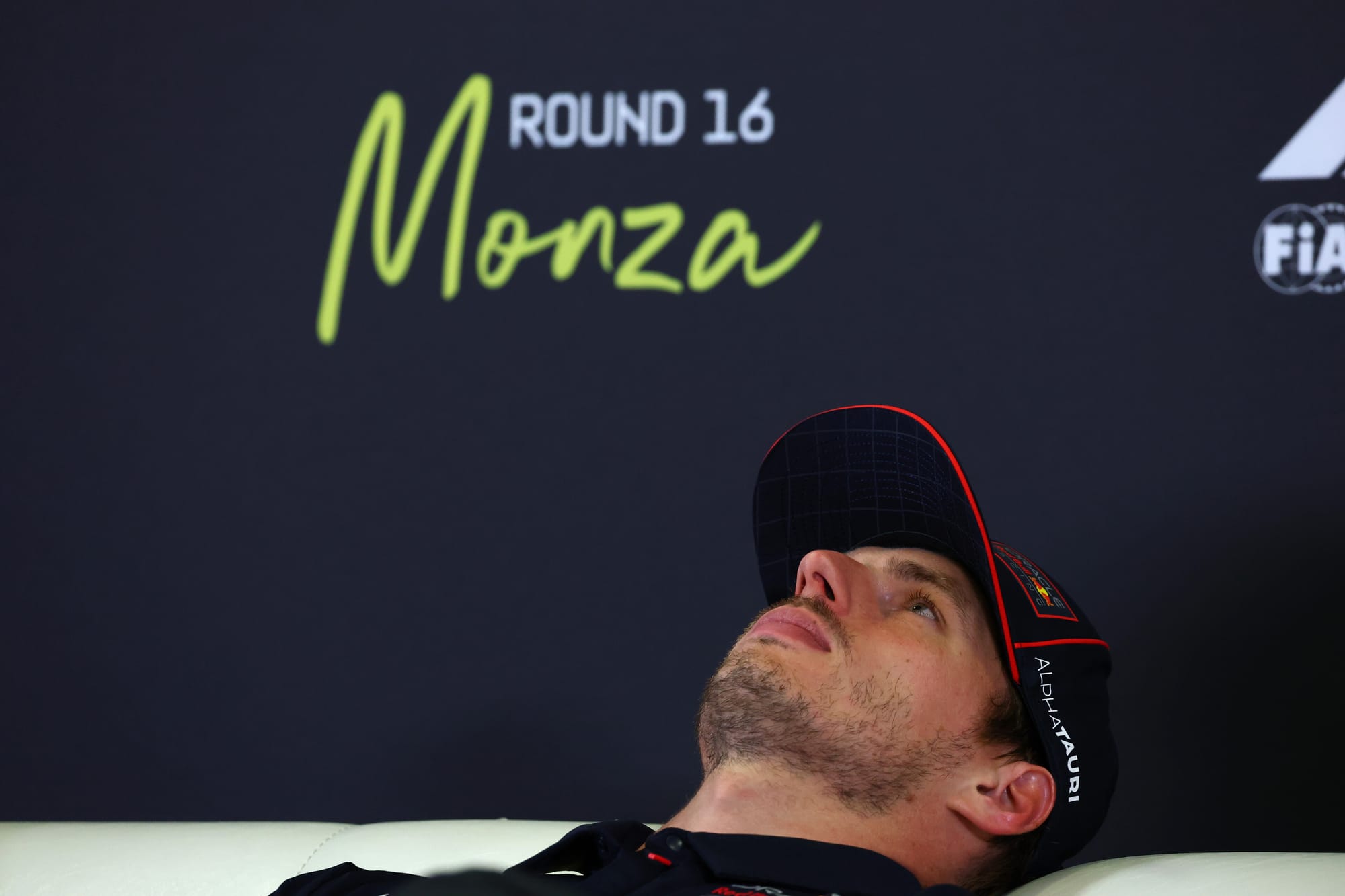
Verstappen certainly seems to have embraced Mekies being more engineering-minded than Horner, which the Dutchman thinks has had a positive impact on the way weekends have mapped out.
Speaking after Monza, Verstappen said that, as a consequence of Mekies’ background, engineering meetings and decisions appear to have been a bit more methodical.
Verstappen said: “Up until now we've had a lot of races where we were just shooting left and right a little bit with the set-up of the car.
“Quite extreme changes, which shows that we were not in control. We were not fully understanding what to do.
“With Laurent having an engineering background, he's asking the right questions to the engineers - common-sense questions - so I think that works really well.
“Plus, you try to understand from the things that you have tried, that at one point some things give you a bit of an idea of a direction, and that's what we kept on working on.
“I definitely felt that in Zandvoort already we took a step that seemed to work quite well, and then here another step which felt again a little bit better.”
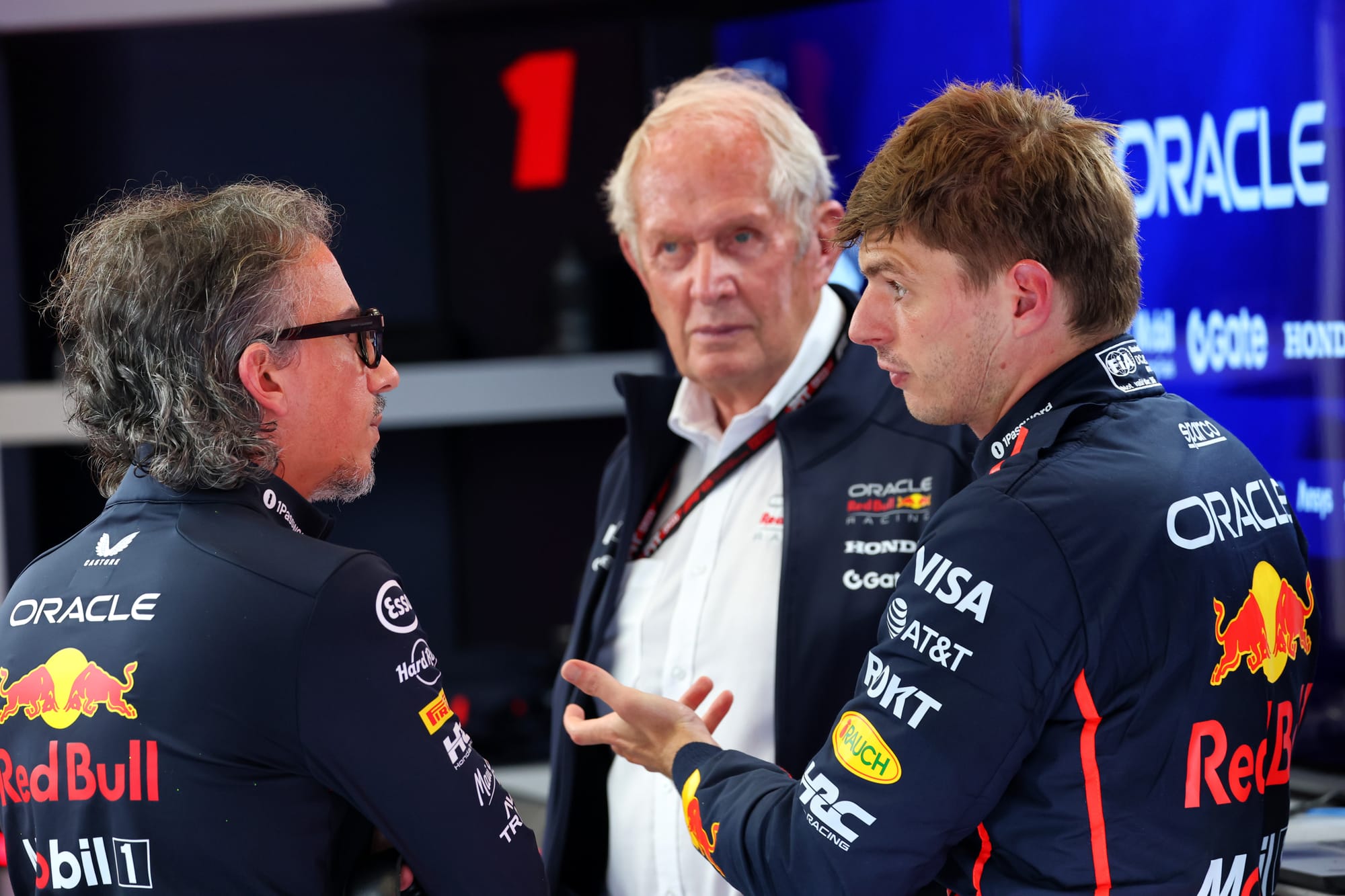
It does appear that since Mekies’ arrival the wild swings that we often saw between Red Bull’s difficult Friday form and the rest of its weekend have gone.
Now, Red Bull appears to be more consistent with its pace through the weekend.
This can be both a good and a bad thing though. That trait was a positive for Italy as a strong Friday built momentum towards a brilliant win.
However, it did mean Hungary was poor throughout as the team got itself into totally the wrong set-up window and could not unwind things.
A new approach to risk
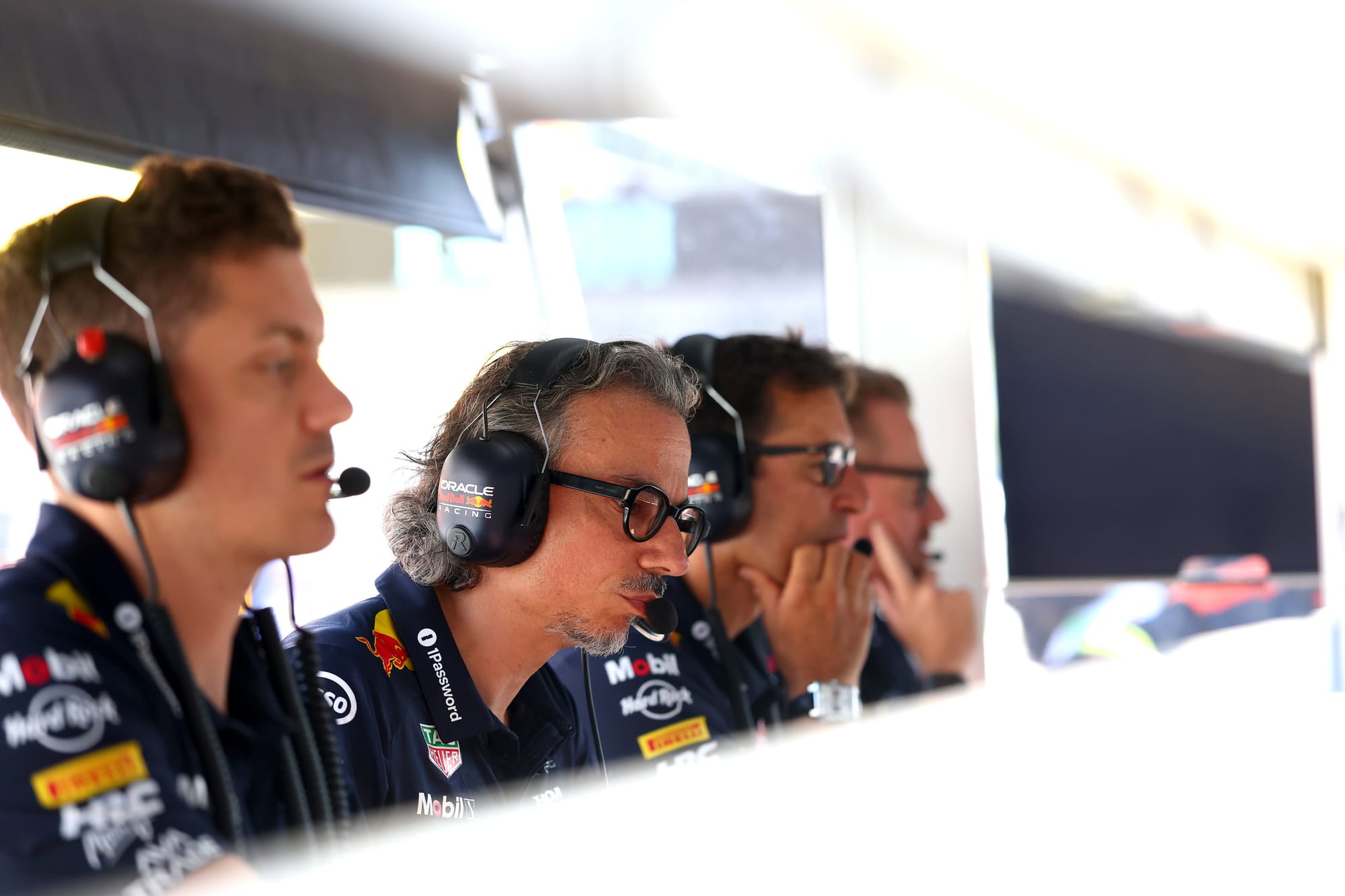
While an engineering-minded approach for a team can mean being very methodical and safe when it comes to making decisions, that is not actually something Mekies has pushed Red Bull to be.
In fact, he has suggested that what is critical now, as he continues to learn about the team and the way it works, is to take some risks.
This is an area where things do appear to have shifted under Mekies, with some notable examples of him being willing to push things a bit more.
One is set-up choice; which was shown by Verstappen pushing back against some resistance to commit to the trimmed wing configuration that he had tried out at the end of FP3 in Monza.
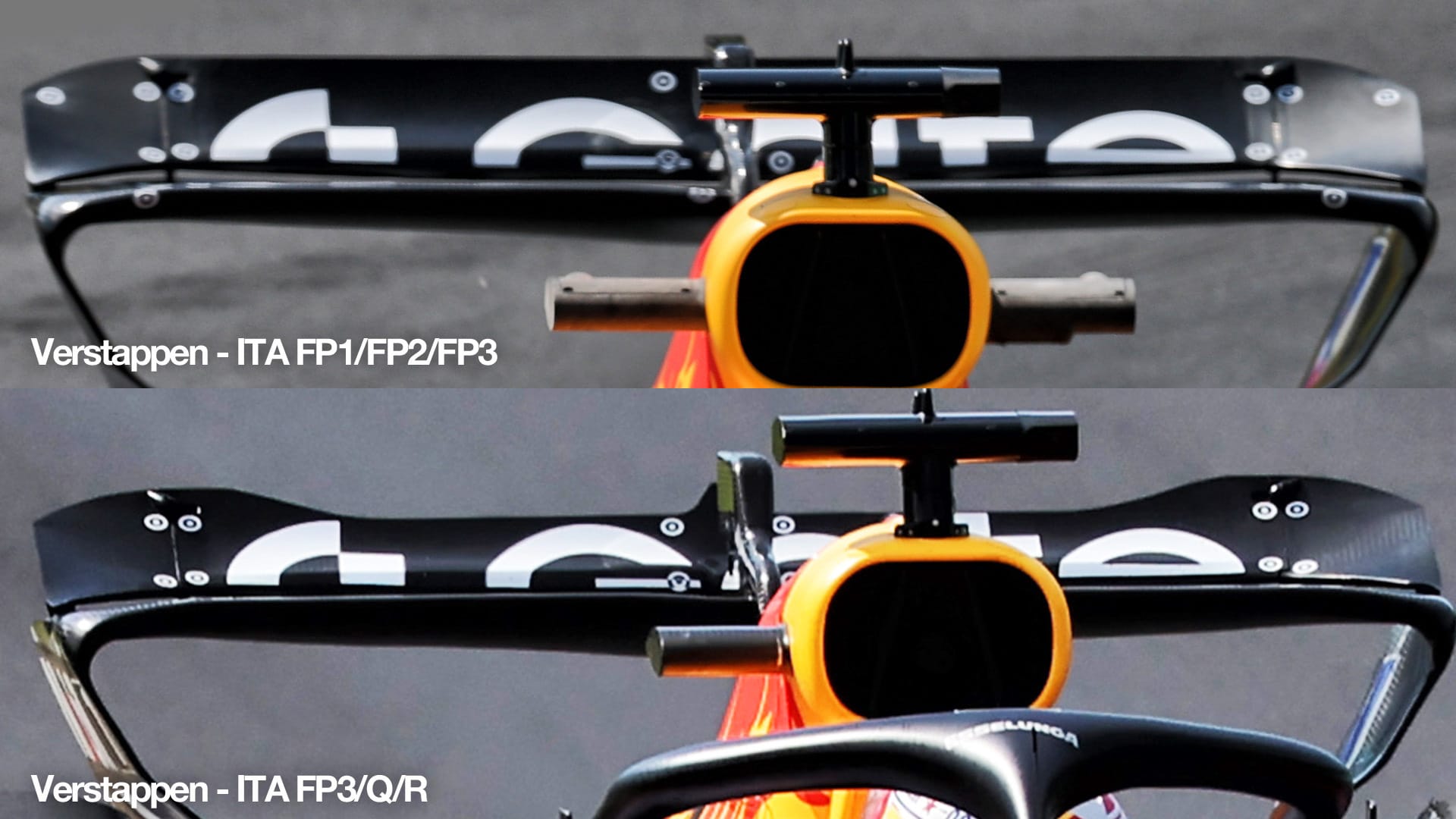
In the end, Mekies swallowed his scepticism and went with what his driver wanted.
Another was tyre choice, as a dig through the allocation that Red Bull had kept back for the Italian GP showed it had deliberately given itself an extra hard for the race, which could have been beneficial with a late safety car.
It was an approach that meant sacrificing a soft – so it had to be aggressive in committing to getting through Q1 and Q2 on just one of the C5s.
As Mekies said: “It's risk taking. We could have looked a bit stupid, but we did go to Q3 with only spending these two sets.”
This risk-on approach has positives and negatives. But it is being done now as a means for Mekies to understand exactly where things are at with car and team.
Mekies explained: “We take risks to get to the maximum understanding possible of what has limited the project this year.
“We took risks in Budapest, and it was an extremely poor weekend. We put our drivers in a difficult situation, but we do that to learn.
“We are getting some payback [in Monza]. It's good learning, the extent of the learning, we will see where it takes us [in] the next few races.”
A fresh look from new eyes
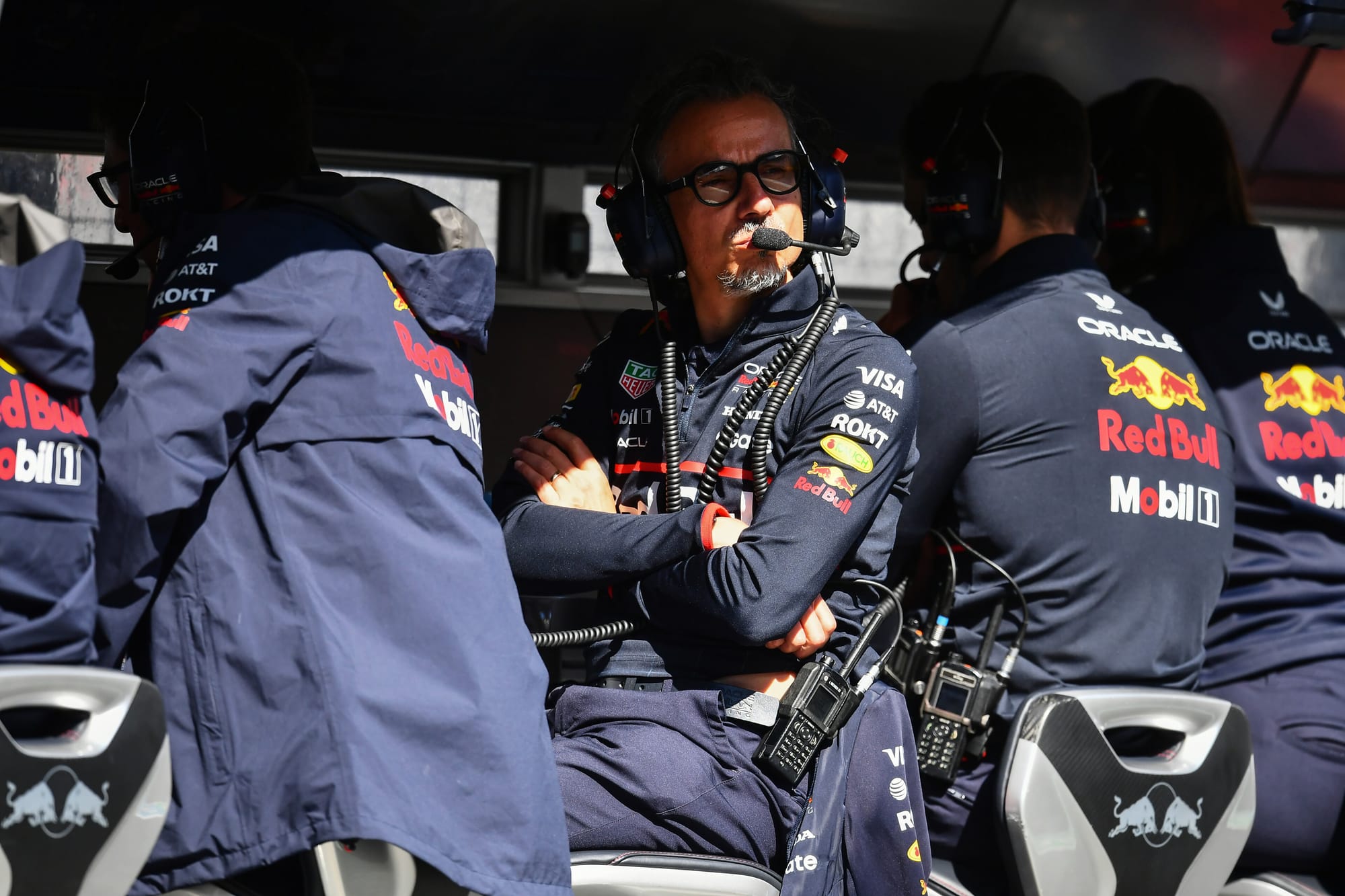
One of the inevitable shifts from Horner to Mekies is the new outlook from the top that happens in every company when it moves from a stalwart leader to newcomer.
Gone are accepted ways of doing things that can get entrenched when the leadership remains static. The arrival of fresh eyes means everything suddenly gets put under the spotlight.
Key in such circumstances is making sure that the things that are done for the right reasons are kept, and those that are wrong, or need improving, are changed.
Charting the way through that can sometimes be easier when things go wrong - like they did in Hungary – than when success keeps rolling. Because it is only on the dark days that the weaknesses get exposed.
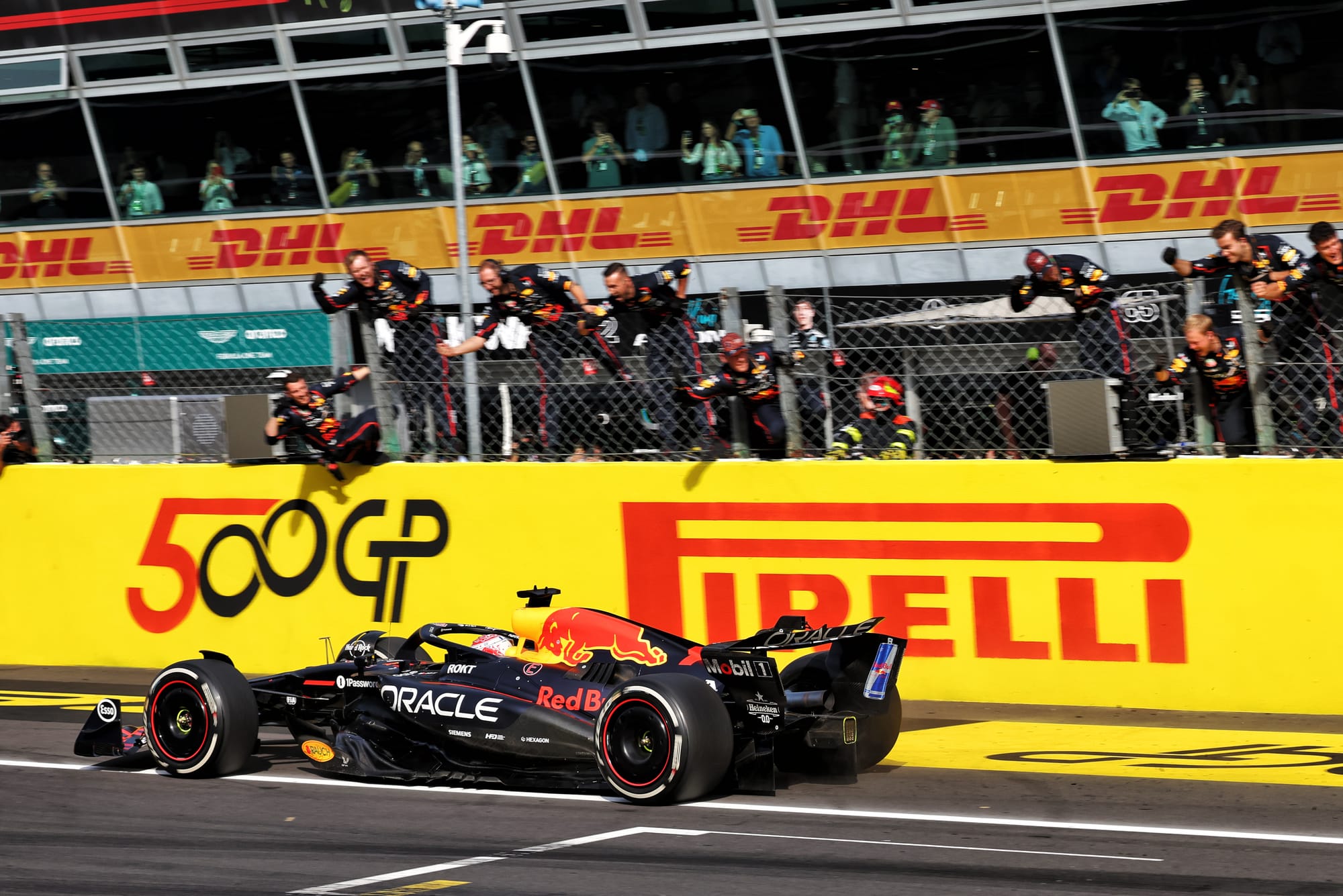
As Mekies said: “When things are not working the way you would like them to work, when you are missing that ultimate pace, you question everything. That's the way we are.
“That's the way competition is. You question everything, and what is great in the team is that they kept an open mind.
“They did question everything in a very constructive way, and it's a lot of hard work, and you don't always get the positive feedback from the track as what we got [in Italy].”
Mekies clearly sees his role in the team not as the big boss who rules over everything, something that Horner felt was critical to him getting the best out of the Red Bull machine.

Instead, Mekies sees himself as a facilitator for others to show their talent.
“Our only role is to make sure that the talents we have are put in the right conditions to express their talent as best,” he said.
“That's the only thing we are doing. That's the extent of the contribution. And that's it. Nothing more.”
That is why communications may be different on the pitwall, why the engineers are being questioned in a different way and why Red Bull perhaps is not as much in the media spotlight as it was when Horner was there.
Different people always approach things in a different way.
The stress-test element
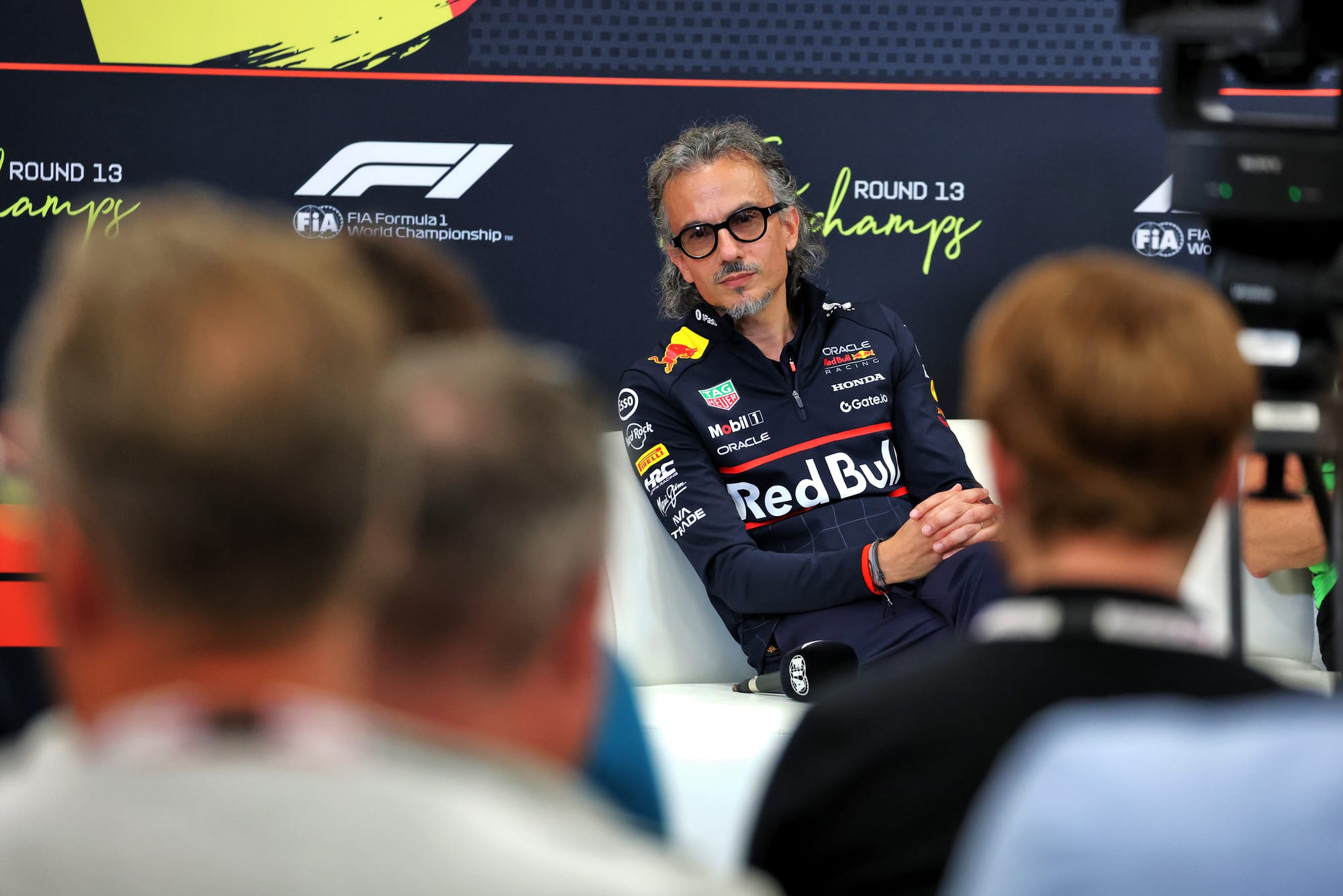
Replacing someone like Horner who had been in place for 20 years and shaped a whole team in their vision meant that Mekies was never going to face a simple task.
Things he does differently will inevitably be questioned, especially with many at Red Bull having built up huge loyalty to Horner and some still feeling sad at his exit.
Mekies has proved from the off to be very personable, but being new means previous strong bonds of relationships that existed between staff and team boss cannot be built in the same way in such a short space of time. This will take months or even years to get in place.
How things shake out over the long term remains to be seen, as we are still perhaps too early in the cycle to see shifts in approach have a direct influence on altering results on track.
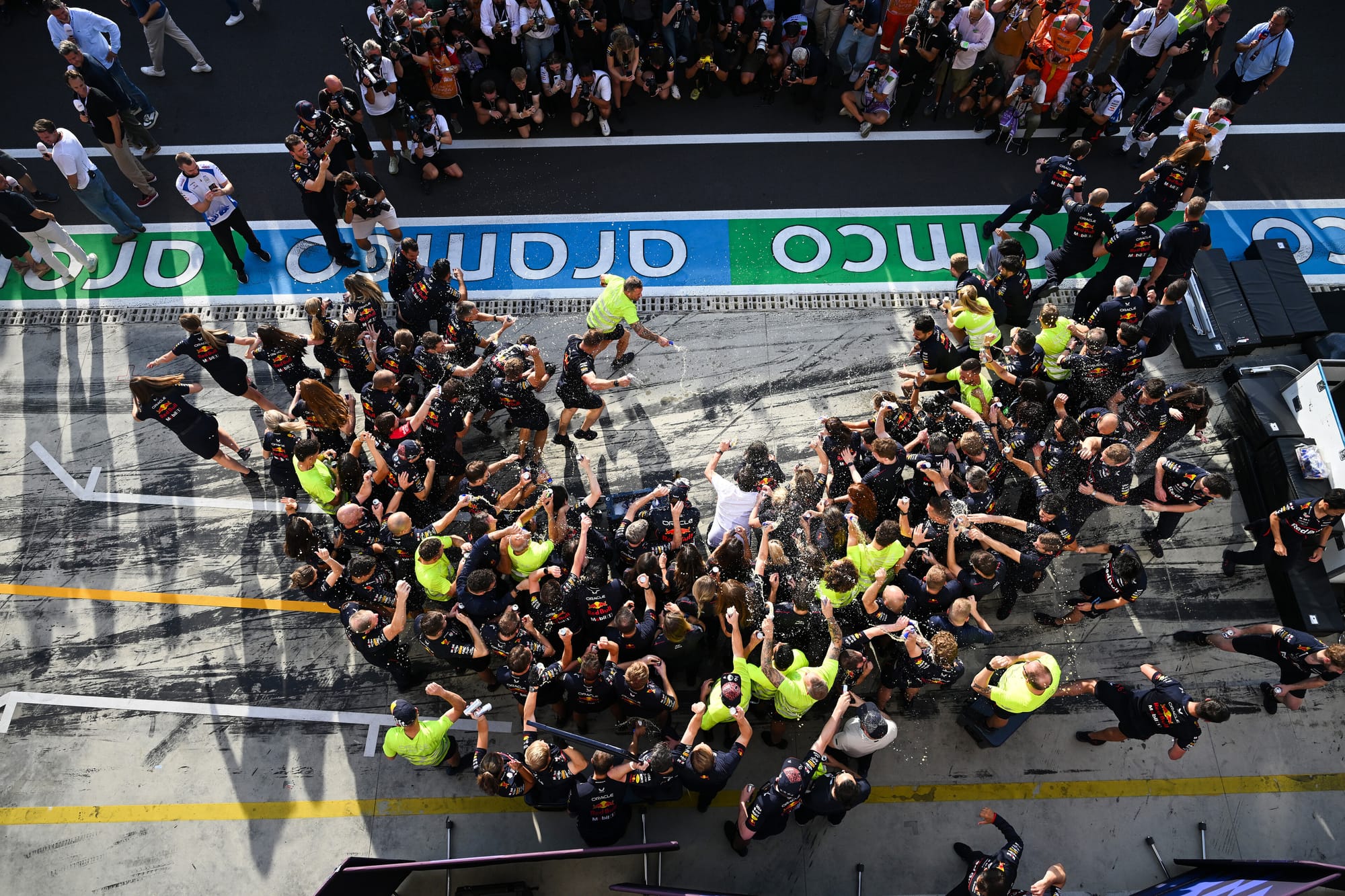
Plus some of the potentially biggest challenges have not been faced yet.
There are going to be stress tests in the future, like Verstappen’s future beyond 2026 will become a huge talking point at the start of next year if results are not great, as will Red Bull’s good or bad adaptation to becoming an engine supplier and a fresh rules cycle to master.
Will Mekies be willing to go on the attack against others, and play some political games to help a recovery as we know Horner would?
That is something we will only find out when we get there. For it is often only in crisis that we see the true test of leadership.


